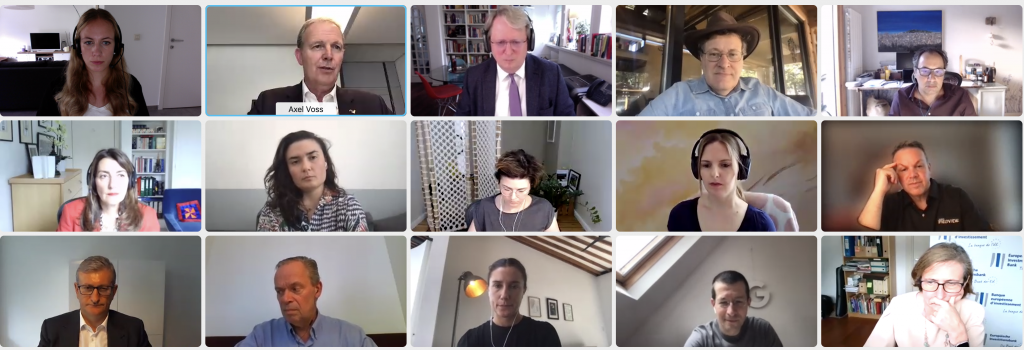
To explore how Europe can leverage the benefits of technology to deliver net-zero carbon emissions economy, the Lisbon Council convened an eclectic group of artificial intelligence experts, progressive-company thought leaders, top policymakers and a director of the European Investment Bank for the High-Level Roundtable on New Coalitions, New Roadmaps: How Advanced Technology and Innovation Can Deliver Net-Zero Carbon Emissions. John C. Platt, distinguished scientist at Google and co-author of Tackling Climate Change with Machine Learning, a 22-author ArXiv publication co-funded by the National Science Foundation, kicked-off the discussion with an overview of the potential of machine learning and artificial intelligence to deliver crucial energy savings with projects that could take the equivalent of one year of Belgium’s energy emissions (100 million tons of CO2 equivalent) out of the atmosphere. Bojana Bellamy, president at the Centre for Information Policy Leadership; Dušan Chrenek, principal adviser at the directorate-general for climate action at the European Commission; Daniel Pereira, EMEA business lead, Climate Corporation, Bayer; Laura Piovesan, director for innovation and competitiveness in the projects directorate of the European Investment Bank; Nan Ransohoff, head of climate at Stripe; Harry Verhaar, head of global public and government affairs at Signify and Europe chair of the Corporate Leaders Group; and Axel Voss, member of the European Parliament (Germany-European People’s Party) and rapporteur for the special committee on artificial intelligence in a digital age, discussed the challenge of deploying technology for social good and environmental benefit.
The transition to a net-zero-carbon-emission economy is perhaps the most compelling illustration of an increasingly important phenomenon: systemic change on a global scale won’t be possible without common efforts across regions and disciplines and wider deployment of advanced technologies. The Lisbon Council is committed to uniting a vast array of stakeholders – from different regions and across different sectors – around the clearly global challenge of “making Earth fit for the future,” to paraphrase the Lisbon Council’s motto. Innovation will clearly lie at the heart of the transition; but so will common plans, good roadmaps, a taste for collaboration and a willingness to commit.